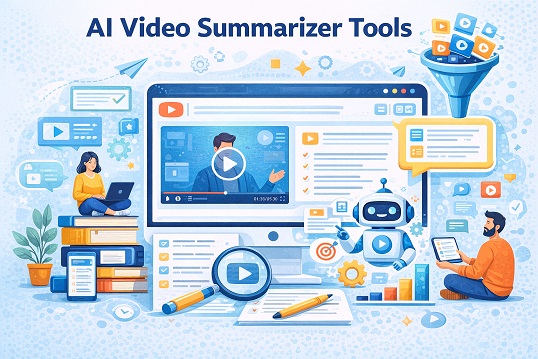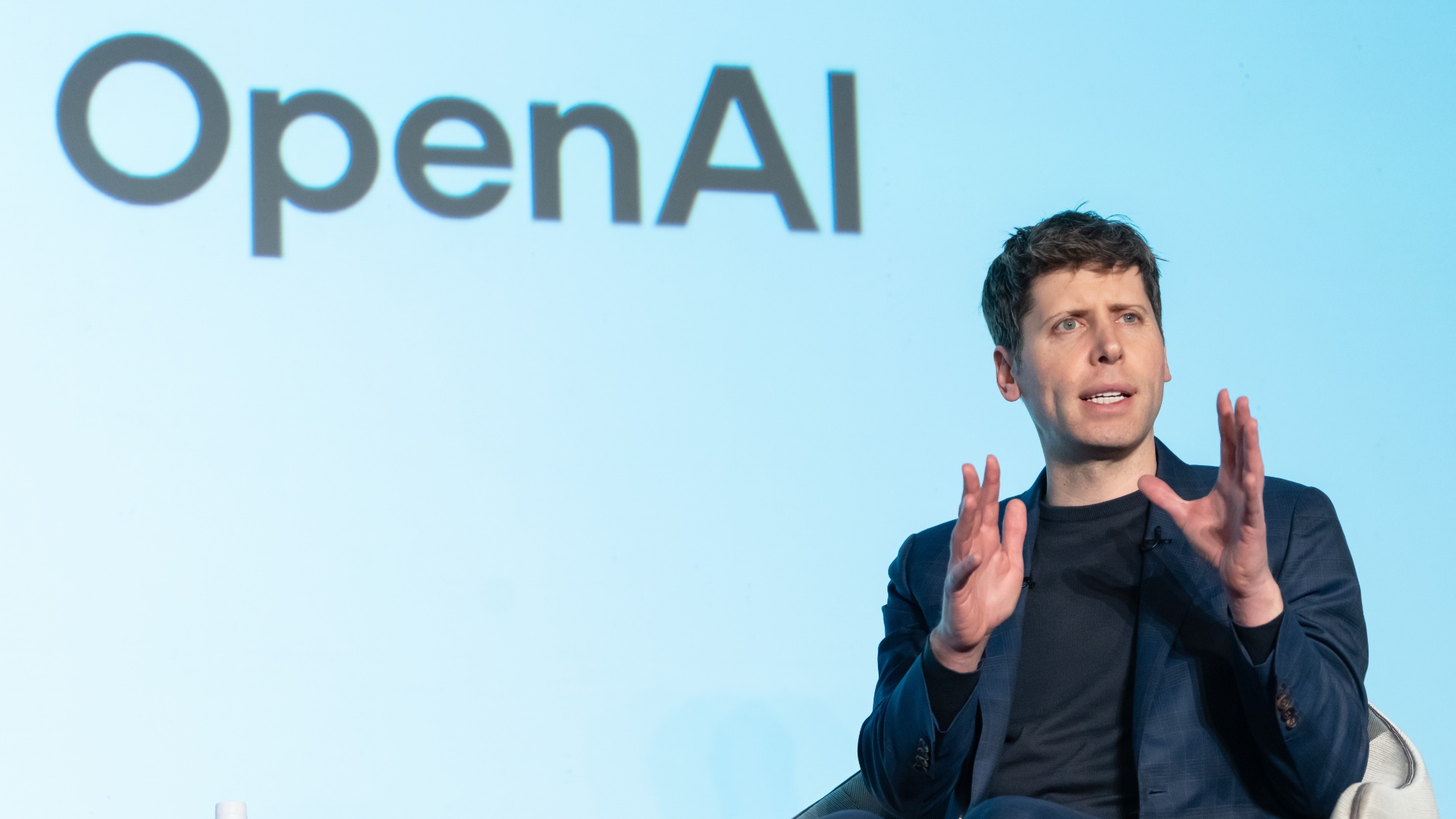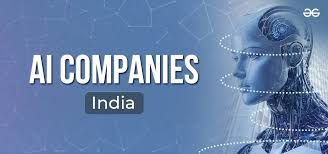Stories you may like
CMS Developer
A CMS (Content Management System) developer focuses on designing, developing, and customizing CMS platforms. A CMS platform allows users to create, manage, and modify digital content on websites without requiring extensive technical knowledge.
CMS developers tailor CMS platforms to meet specific client requirements. They are responsible for creating custom themes, plugins, modules, and extensions, ensuring seamless integration and optimal performance. These developers collaborate with web designers, content creators, and clients to understand the website's objectives and user experience goals. They also focus on implementing responsive designs, enhancing website security, and optimizing website speed.
Duties and Responsibilities
The duties and responsibilities of a CMS developer revolve around creating, customizing, and maintaining websites and web applications using CMS platforms. Here are the key aspects of their role:
- CMS Customization: CMS developers customize CMS platforms like WordPress, Drupal, or Joomla to meet specific client requirements. They modify and extend the core functionalities of CMS software by creating custom themes, templates, plugins, modules, and extensions. This customization ensures that the websites have unique designs and features tailored to the client's needs.
- Website Development and Implementation: CMS developers are responsible for building websites and web applications from scratch using CMS platforms. They create user-friendly interfaces, interactive elements, and responsive designs, ensuring that the websites function seamlessly across different devices and screen sizes. CMS developers implement content structures, configure settings, and integrate multimedia elements like images and videos into the CMS-driven websites.
- Content Management and Data Entry: CMS developers assist clients in managing their website content effectively. They set up content workflows, user roles, and permissions, allowing clients to publish, edit, and organize content with ease. CMS developers may also provide training to clients on how to use the CMS interface for tasks like adding new pages, updating text, or uploading media files. In some cases, CMS developers handle data entry tasks, ensuring that the content is accurately inputted and organized within the CMS.
- Performance Optimization and Security: CMS developers optimize websites for performance by implementing caching mechanisms, optimizing images, and minimizing code to reduce loading times. They also focus on website security by implementing security best practices, such as securing login forms, updating plugins and themes, and configuring firewalls to protect against potential cyber threats and attacks.
- Troubleshooting and Technical Support: CMS developers diagnose and troubleshoot issues related to website functionality, layout, or performance. They investigate errors, conflicts, and bugs within the CMS and its components, resolving issues promptly to maintain a smooth user experience. CMS developers may also provide technical support to clients, assisting them with inquiries, problems, or updates related to the CMS-driven websites.
- Continuous Learning and Stay Updated: Given the evolving nature of CMS platforms and web technologies, CMS developers continuously learn about new tools, plugins, and best practices. They stay updated with the latest trends and updates in the CMS ecosystem to provide clients with innovative and efficient solutions.
Workplace of a CMS Developer
The workplace of a CMS developer can vary based on the type of employment, industry, and individual preferences. CMS developers have the flexibility to work in diverse settings, including tech companies, web development agencies, corporate offices, or as freelancers, offering a range of work environments to suit their needs.
Corporate Offices and Tech Companies: Many CMS developers are employed by large corporations or technology companies. In these settings, developers work in modern office environments equipped with high-end computers, multiple monitors, and collaborative tools. They collaborate closely with cross-functional teams, including other developers, designers, project managers, and clients. The atmosphere is generally professional and dynamic, fostering teamwork and innovation. Corporate offices and tech companies provide a structured work environment, enabling developers to engage in team meetings, brainstorming sessions, and code reviews, enhancing collaboration and problem-solving skills.
Digital Agencies and Web Development Firms: CMS developers often find employment in digital agencies and web development firms. These agencies work on projects for various clients, including businesses, nonprofits, and government organizations. Developers in such environments work in creative and fast-paced settings. They may collaborate with clients directly, translating client requirements into functional CMS-based websites. The atmosphere is often dynamic, with a focus on meeting client deadlines and delivering high-quality projects. Collaboration and creativity are key aspects of the workplace in digital agencies, where developers contribute to the agency's portfolio of diverse web solutions.
Freelancing and Remote Work: Many CMS developers choose to work as freelancers or remote professionals. Freelancers have the freedom to work from home, co-working spaces, or coffee shops. Remote CMS developers communicate with clients and team members through email, chat, video conferences, and collaboration tools. Freelancing and remote work offer flexibility and autonomy, allowing developers to set their schedules and choose projects that align with their skills and interests. This setup provides developers with the freedom to balance work and personal life while managing their workload independently.
Regardless of the work setting, CMS developers spend a significant amount of time in front of computers, writing code, customizing CMS platforms, and collaborating with team members or clients. The workplace of a CMS developer is characterized by innovation, problem-solving, and continuous learning, creating an environment conducive to creativity and technical expertise.
How to become a CMS Developer
Becoming a CMS developer requires a combination of education, technical skills, practical experience, and continuous learning. Here is a guide to help you become a CMS developer:
- Develop a Strong Educational Foundation: Start by obtaining a Bachelor's Degree in Computer Science, Software Engineering, Information Technology, or a related field. While a formal degree is valuable, self-taught developers can also succeed through online courses, tutorials, and practical experience.
- Learn Necessary Programming Languages and Technologies: Master programming languages such as PHP, JavaScript, HTML, and CSS, which are commonly used in CMS development. Familiarize yourself with databases (MySQL, PostgreSQL), server-side scripting, and web technologies like RESTful APIs and JSON.
- Choose a CMS Platform: Select one or more CMS platforms to specialize in, such as WordPress, Drupal, Joomla, Magento, or others based on market demand and your interests. Each CMS has its unique features and programming languages, so choose the one aligning with your career goals.
- Take Online Courses and Tutorials: Enroll in online courses and tutorials focused on your chosen CMS platform(s). Platforms like Udemy, Coursera, and LinkedIn Learning offer comprehensive courses taught by experienced professionals. These courses cover various aspects, from basic to advanced CMS development.
- Practice and Build Projects: Apply your knowledge by building projects using your chosen CMS. Start with simple websites and progress to more complex projects. Creating a portfolio showcasing your projects is crucial for demonstrating your skills to potential employers or clients.
- Contribute to Open-Source Projects: Contribute to open-source CMS projects on platforms like GitHub. Engaging with open-source communities not only enhances your skills but also showcases your expertise to the wider developer community.
- Attend CMS-Specific Events and Workshops: Participate in CMS-related events, workshops, and conferences. These events provide opportunities to learn from experts, network with professionals, and stay updated with the latest trends and technologies in CMS development.
- Obtain Certifications (Optional): Consider earning certifications specific to your chosen CMS platform. CMS platforms like WordPress and Drupal offer official certifications, validating your expertise and enhancing your credibility as a developer.
- Gain Practical Experience: Secure internships, part-time jobs, or freelance opportunities to gain practical experience in CMS development. Real-world projects provide valuable insights and help you develop problem-solving skills.
- Build a Professional Network: Join developer communities, attend meetups, and engage with professionals in the field. Networking can lead to job opportunities, collaborations, and mentorship, helping you advance your CMS development career.
- Stay Updated and Adapt: CMS technologies evolve rapidly. Stay updated with the latest features, plugins, and best practices. Adapt to new trends, security standards, and user experience guidelines to remain competitive in the field.
Certifications
CMS developers can enhance their skills and marketability by obtaining certifications specific to popular CMS platforms. These certifications validate your expertise and demonstrate your proficiency in developing, customizing, and managing CMS-driven websites.
- Joomla Certification: The Joomla Certification Program offers certifications for Joomla administrators and developers, validating their expertise in Joomla website development and management.
- Magento Certified Professional Developer: Magento, an e-commerce CMS, offers certifications for developers, including the Magento Certified Professional Developer exam, validating their skills in Magento 2 development.
- Kentico Certified Developer: Kentico offers certifications for developers working with its CMS platform, including Kentico Certified Developer and Kentico Certified Marketer exams.
- Sitecore Certification: Sitecore provides certifications for developers and marketers, including the Sitecore Professional Developer Certification, focusing on developing solutions using Sitecore CMS.
- Contentful Certified Professional: Contentful, a headless CMS provider, offers certifications validating professionals' skills in implementing and managing solutions using the Contentful platform.
WordPress Certifications:
- WordPress Certification by WP Elevation: WP Elevation offers a comprehensive certification program covering WordPress development, design, and business skills.
- Automattic Certified WordPress Developer: Automattic, the company behind WordPress.com, offers a certification program for WordPress developers, assessing their knowledge and skills in WordPress development.
Skills needed for a CMS (Content Management System) Developer:
Core Technical Skills
1. Proficiency in CMS Platforms
- Expertise in one or more CMSs such as:
- WordPress (PHP-based)
- Drupal
- Joomla
- Shopify
- Magento
- Adobe Experience Manager (AEM)
2. Front-End Development
- HTML5, CSS3, JavaScript, jQuery
- Responsive design (Bootstrap, Tailwind CSS)
- Familiarity with React, Vue.js, or Angular (for custom CMS interfaces)
3. Back-End Development
- PHP, Python, Node.js, or .NET, depending on CMS type
- Understanding of server-side templating and API integrations
4. Database Management
- Knowledge of MySQL , PostgreSQL , or MongoDB
- Ability to design and optimize database schemas
5. Version Control Systems
- Experience with Git (GitHub, GitLab, or Bitbucket)
CMS-Specific Skills
1. Theme & Plugin/Module Development
- Creating and customizing CMS themes and extensions/plugins
- Understanding CMS architecture and hooks
2. Content Workflow Management
- Configuring user roles, permissions, and publishing workflows
3. API Integration
- RESTful or GraphQL APIs for data exchange between systems
4. SEO & Performance Optimization
- Implementing SEO best practices within CMS
- Page speed and caching optimization
5. Security Practices
- Knowledge of web security, input sanitization, and data validation
Professional & Soft Skills
1. Analytical Thinking – to translate business needs into CMS features
2. Problem-Solving – debugging and performance troubleshooting
3. Attention to Detail – ensuring seamless UX/UI integration
4. Collaboration – working with designers, marketers, and content teams
5. Documentation Skills – writing clean code and technical documentation
Optional / Bonus Skills
- Experience with Headless CMS (e.g., Strapi, Contentful, Sanity)
- Understanding of DevOps (Docker, CI/CD pipelines)
- Familiarity with cloud hosting (AWS, Azure, GCP)
- Knowledge of accessibility (WCAG)and multilingual site development









User's Comments
No comments there.